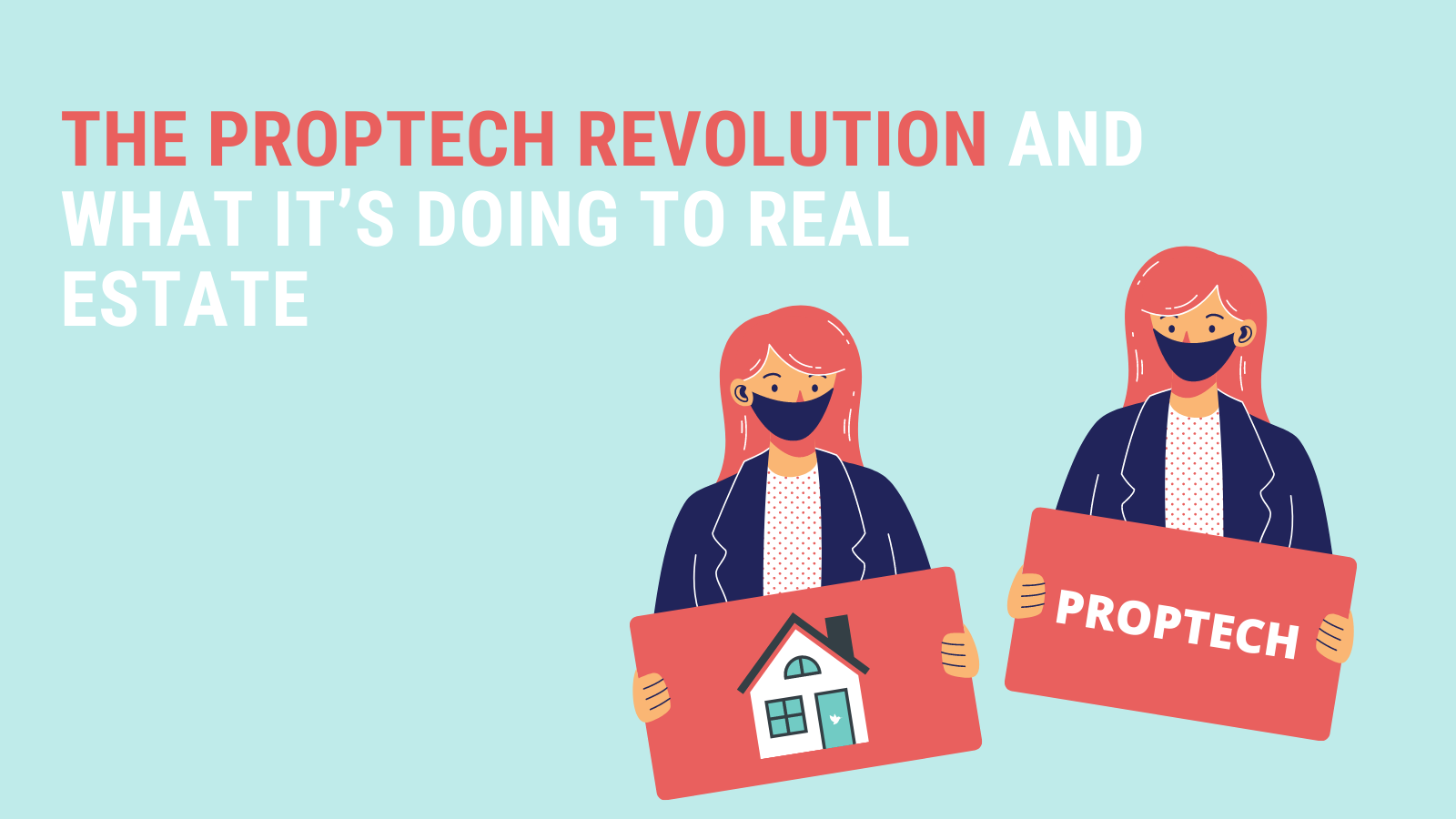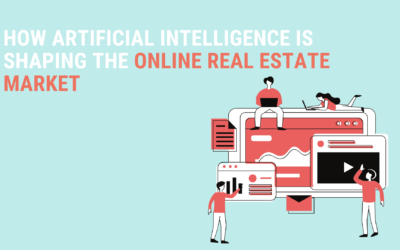The PropTech Revolution and what it’s doing to Real Estate
26 January 2021 | 4 min read

The world of real estate has long been mired in the analog world, oscillating between buyers and sellers who do their best to arrive at a fair deal with imperfect information. This is how it’s been for hundreds of years and the asymmetrical informational advantage has, for the most part, concentrated the rewards in the hands of the few. However, this paradigm has shifted significantly in recent times because, as it is wont to do, technology has liberated the industry and brought it into the light – changing the way that the whole industry functions from the ground up.
The range of innovations that technology has wrung down upon the industry has been nicely summarised and coined into one of those catchy buzzwords that are often thrown around – that being PropTech. It’s the term that you’ll hear in every investor pitch, every forward-looking article, and every Clubhouse debate about real estate. It really is a catch-all.
What does PropTech really mean?
At its core, the PropTech meaning is tantamount to the shifting of real estate business models and processes into digital formats and platforms which can unlock the potential of advanced data analytics and increased efficiencies. In the same way that technology has disrupted other industries, relegating outdated business models to obsolescence and crowning new players who understand the modern customer’s needs, PropTech real estate is doing that for this industry.
What are the implications of PropTech?
Broadly speaking, PropTech puts significant pressure on any systems or processes that aren’t optimized for data-driven decision making. The key value driver that technology brings to the table is that data can be collected at vast scales across every part of the real estate value chain and this can be fed into predictive machine-learning-based models to derive new insights and information that previously were opaque or unattainable.
It’s a new paradigm shift for how companies and individuals think about real estate because by quantifying the market at a mass scale, consumers aren’t limited by their access to properties or their resourcefulness in seeking them out. Instead, buyers and sellers can seek each other out in much more systematic ways, matching a wide range of different criteria – that suit the needs and preferences of both parties.
When this works well, the democratization of data makes the market more efficient and aligns the incentives in a way that couldn’t be accomplished in an analog format. Consumers have realized this and, as a result, online real estate portals have become the trusted source of truth for real estate across the world. Building on the momentum of marketplaces in every other industry, customers find tremendous value in being able to do their own research from the comfort of their couch – rather than spending all their time driving around to open houses. Big data allows for a much more comprehensive search process, removing a great deal of the friction that was previously part of the process.
But in order to really leverage the power of PropTech, you need to go further than just digitizing the prospecting process.

How do you leverage PropTech to its full potential?
If you want to take the PropTech revolution seriously and get the most out of it, you have to integrate true data-driven decision making into your organization. All across the real estate value chain, there are opportunities to structure the data you are capturing, analyze it effectively, and derive insights to feed into the strategy longer-term. The real estate market is constantly changing and adapting to the macro-economic situation, the sentiment of buyers, socio-political sensitivities, and a wide range of other factors. So, by taking data seriously and adjusting based on what you’re seeing out there in the field – you can be much more agile and forward-thinking from a business perspective.
Advancements in machine learning and artificial intelligence have made this an increasingly powerful proposition for companies who do it well. But it requires an effective data strategy and deployed resources to clean, structure, and model it, and a willingness to act on the insights derived, regardless of how counterintuitive they are.
Then from a customer perspective, there are a number of opportunities to leverage PropTech in delivering a better experience to consumers. In the heavily saturated world of online real estate portals, this is a key differentiator that should be front of mind. The success of recommendation algorithms has been proven in social media, entertainment, and e-commerce – just to name a few; and when these tactics are applied to real estate, you can unlock tremendous value.
Online portals need to be so much more than a glorified classified. They should be using the data at their disposal to deliver personalized, contextual experiences to customers that surprise and wow them. There is something magical about delivering results to a customer that feels like it was personally crafted for them, and before PropTech that simply wasn’t possible. But now, by using data effectively, you can scale the unscalable. You can deliver an online experience that understands each consumer for who they are and provide to them a highly targeted set of results that is in their best interests.

Conclusion
PropTech is something that simply cannot be ignored. In a very short space of time, it has become the driving force behind a tremendous level of innovation in the real estate industry. By evening the playing field, it rewards the alignment of incentives and pulls traditional real estate kicking and screaming into the digital world. As the famed venture capitalist, Marc Andreessen said: “Software is eating the world”, and this could not be truer in real estate. It is transforming the status quo from the inside out.
Companies who embrace the change and reform their companies with the latest PropTech trends in mind will find themselves opening up new markets, optimizing existing processes, and winning over clients who are looking at real estate for the first time. Those who don’t, and choose to do things as they’ve always done, will find themselves irrelevant in the modern world.
Action is needed. This is where the future is going.
If you’re ready to dabble in one of these technologies and start providing better customer experiences, increase your conversions, and get ahead of your competitors, then we’re here to help. Reach out to us to get a free 30 min call with one of our experts and learn more about the possibilities of real estate technology. Contact us today.

Check out our computer vision solutions



Check out our computer vision solutions

How House Alerts Help To Obtain Higher Click-Through Rates
Thanks to house alert systems, you can quickly inform potential buyers when new properties that match their criteria show up. Here is a step-by-step guide that will show you how you can retarget potential customers and help them find the house of their dreams.
Two Unique Dashboards That Will Help Your Real Estate Agents Close More Deals
Being successful in sales is about knowing your product inside out and knowing everything there is to know about your customer. Luckily, it’s easier to achieve these two goals today than ever before by using some unique dashboards. Read everything about it here:
How Artificial Intelligence is Shaping the Online Real Estate Market
Now in 2021, the message is clear; AI is here, and it’s here to stay. But what impact does this technology have on the real estate market? Read everything about it in this article



